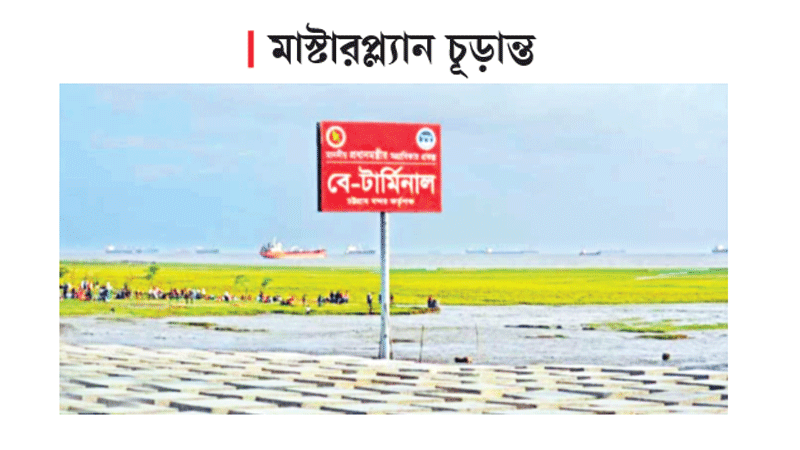The finalization of the master plan for the Bay Terminal has paved the way for the commencement of construction work to enhance the capacity of the Chittagong Port. Detailed design work is currently underway, and once completed, the actual implementation of the project will begin promptly. The initiative to build the Bay Terminal was undertaken by the port authorities in 2015 to increase the port’s capacity. Despite an eight-year delay, there are no more obstacles to starting the work on the terminal now that the master plan has been concluded.
Following a second round of revisions, the port authorities have finalized the master plan for the project. Prime Minister Sheikh Hasina unveiled the model of the terminal on November 14, signifying the completion of the terminal’s master plan. According to Mostafa Kamal, the Senior Secretary of the Ministry of Shipping, with the master plan now in place, there are no further impediments to commencing work on the Bay Terminal. He expressed optimism that the construction work will conclude by the middle of 2026, with full operation expected in 2027.
In 2015, the initiative to build the Bay Terminal on an 870-acre site from the Epyzod area of the city to Rasmonighat in South Kattali, along the Bay of Bengal, was taken by the port authorities. The initial decision included the construction of three terminals: a 1,225-meter-long container terminal (Container Terminal-1), an 830-meter-long container terminal (Container Terminal-2), and a 1,500-meter-long multipurpose terminal. Among these, the multipurpose terminal will be operated by the port authorities, while foreign entities will manage the other two.
Omar Hazzaz, President of the Chittagong Chamber of Commerce and Industry, commented, “The Bay Terminal project has been delayed for various reasons, but with the unveiling of the Prime Minister’s model, business optimism has been rekindled. We hope that the construction of the multipurpose shed in the Bay Terminal project will proceed swiftly. Once completed, the terminal will offer both bulk and cargo facilities.”
Port Secretary Omar Faruk stated that the Bay Terminal construction initiative began in 2017, and the initial master plan was approved. However, a significant modification was made in the subsequent master plan approved in 2022. Consulting firms Kuno Engineering and Consulting Company and Dying Engineering Limited developed the plan based on the terms of the contract. The multipurpose shed was relocated to the northern part in this final master plan.
After the approval of the master plan, the final master plan was sent to the Ministry of Shipping in June for detailed design work. Before finalizing the detailed design, the port authorities provided guidance based on the previous master plan review. After reviewing the earlier master plan at the direction of the port authorities, the final master plan was completed again. Chairman Rear Admiral M. Sohail informed that the Bay Terminal’s final master plan has been concluded, taking into account the opinions of domestic and foreign consultants, as well as participating port authorities.
The Bay Terminal project, upon completion, will allow the anchoring of vessels carrying six thousand containers with a draft of 10 to 12 meters. The existing jetty structure at the port can accommodate containers with a maximum capacity of 1,800 units. However, the Bay Terminal will enable the berthing of vessels round the clock.
Roughly Tk 17,000 crore has been estimated for the construction of the Bay Terminal based on the master plan. An investment of around $4 billion is expected through negotiations. Dubai-based DP World and the Port Authority of Singapore are anticipated to invest in this proposed terminal. The World Bank will contribute $50 million to the breakwater construction project to safeguard against deepening, given the natural depth of more than 14 meters, which has garnered interest from foreign investors.
Chittagong Port’s top business organization, FBCCI’s President Mahbubul Alam, remarked, “To advance maritime trade, Chittagong Port’s capacity must be increased. The number of terminals, skilled workforce, and the number of machinery must be increased. The Bay Terminal project will fulfill these requirements, and now it is imperative to initiate the construction process. The finalization of the master plan is a significant advancement. It’s time to start the actual implementation process.”

